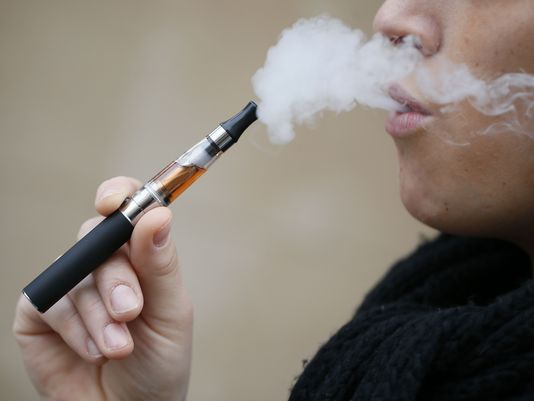Health officials in Austin are again asking for community help to communicate the dangers of e-cigarettes, as well as to combat corporate advertising.
Austin Public Health launched a safety campaign on November 4 to educate the community about the dangers of e-cigarettes. In the last two months, 13 vaping-related illnesses have been reported in Austin/Travis County.
According to health officials, this campaign is reaching into the digital sphere to target the audiences currently targeted by e-cigarette companies: young adults. The campaign also educates parents of teens about e-cigarettes and how they can be difficult to spot, often looking like common school supplies or flash drives. According to the 2018 Texas Youth Tobacco Survey, 32.5{15c2ce8669a1ed2f74ebf6ef168f05679f17d95790f1cbb6a225857870a08390} of Texas high school students and 11.3{15c2ce8669a1ed2f74ebf6ef168f05679f17d95790f1cbb6a225857870a08390} of middle school students reported ever using an e-cigarette. Nationally, more youth than adults smoke e-cigarettes. It’s time for a change.
The e-cigarette industry spends approximately $125 million every year in advertising, according to the U.S. Surgeon General. Local officials say this campaign by Austin Public Health cannot match corporate dollars, which is why they are turning to the public for help in spreading the following information:
- E-cigarette vapor is not believed to be harmless;
- Most e-cigarettes contain nicotine, which is highly addictive and can harm adolescent brain development, which continues into the early to mid-20s;
- A common ingredient in e-cigarette flavoring is diacetyl. Diacetyl causes bronchiolitis obliterans, known as “popcorn lung.” It is the scarring of the tiny air sacs in the lungs, which causes thickening and narrowing of airways, leading to wheezing and shortness of breath;
- The the long-term health consequences of vaping are still unknown and e-cigarettes are not approved cessation devices;
- Defective e-cigarette batteries have caused fires and explosions, some resulting in serious injuries and death;
- There has been a significant increase in the number of e-cigarette and liquid nicotine poison control cases.
Health officials still recommend avoiding e-cigarette use as the national investigation is ongoing.





